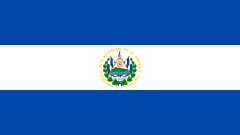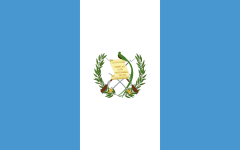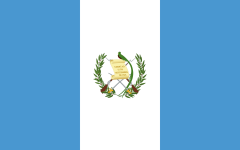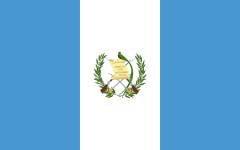July 14 2021 – by Lakshmi Sarah for KQED, San Francisco
This situation is closer than you think ... And the reason for that is because it's our money, it's our tax dollars paid to train Honduran police and the Honduran military.'Silvio Carrillo, nephew of slain Indigenous rights defender Berta Cáceres
A Bay Area family member of slain environmental and Indigenous rights defender Berta Cáceres is calling on the federal government to stop U.S. funding of Honduran military and police.
After years of threats, Cáceres was assassinated in her hometown of La Esperanza in western Honduras in 2016. The renowned environmentalist and Goldman Environmental Prize winner had been leading a campaign to stop the construction of a hydroelectric dam on the Gualcarque River, a river considered sacred by the Lenca people. In 2018, seven men hired as hitmen were convicted in her murder – but until this month no one accused of masterminding her killing had been held accountable.
On July 5, the former head of Desarrollos Energéticos S.A. (DESA), the company overseeing the dam project Cáceres fought against, was found guilty of participating in her killing. Prosecutors argued Roberto David Castillo – who was trained in the U.S. and was a former member of the Honduran army during a coup in 2009 – had masterminded Cáceres' murder. He was convicted of being a co-conspirator. The court will determine his sentence, which could be between 24 and 30 years, on Aug. 2.
Goldman Environmental Prize Winner Murdered in Honduras
“It is a victory. I can't deny that,” Silvio Carrillo, Cáceres' Oakland-based nephew, told KQED. “But, it doesn't feel like a victory. It is one small drop in the sea of corruption in Honduras and we have a long way to go.”
On Twitter the day of the ruling he added: "Berta didn't die, she multiplied."
Earlier this year, Global Witness reported at least 40 environmental activists have been murdered in Honduras since Cáceres' death.
“This is literally the first time a case like this has been successful — successful in that someone was charged. That is incredibly sad,” Carrillo said. He grew up in Washington, D.C., and is now an Oakland-based journalist who has written op-eds for The New York Times on his aunt, as well as on politics in Honduras.
Suyapa Portillo Villeda, a Honduran historian and associate professor at Pitzer College in Southern California, attributes the victory of the dam company executive's conviction to organizers on the ground. She credits COPINH (the Council of Popular and Indigenous Organizations of Honduras), an organization Cáceres started in 1993, for their persistence.
"It's really a testament to the organizing," Villeda said, also referencing the collective of organizations that camped out in front of the court.
Since a 2009 coup, corruption in Honduras has continued to worsen. Carrillo, who was born in the U.S. and grew up spending many summers in Honduras, recalled the dangers his aunt faced.
"They tried to plant a gun on her ... At one point she had to flee — this was just a part of her life," he said. Carrillo also recalled traveling with her one night and said it was "terrifying" having to take two or three taxi cabs in different directions just to make sure she wasn't being followed.
In 2016, after Cáceres was murdered, Carrillo spent time in the halls of the U.S. Capitol lobbying for accountability. The network that Cáceres had established throughout her long years of advocacy allowed him access to meet with members of Congress and their staff.
"This situation is closer than you think," Carrillo said, in reference to why the assassination of an environmental activist in Honduras should matter to those living in the U.S. "And the reason for that is because it's our money, it's our tax dollars paid to train Honduran police and the Honduran military."
Some of the lobbying Carrillo began over five years ago may finally be paying off.
Companion legislation being considered in the House and Senate would suspend support for the Honduran government until corruption and human rights abuses are no longer systemic. A separate bill in the House, the "Berta Cáceres Human Rights in Honduras Act," is a continuation of what Carrillo was advocating for in 2016 and would stop U.S. assistance to the Honduran police or military.
Withdrawing funding from the military speaks to Cáceres' legacy, Pitzer College's Villeda said. She remembers being tear-gassed alongside Cáceres in 2011 while protesting at an airbase. "Berta was of the generation that understood profoundly what militarization did. The bill really speaks to her legacy and efforts to end militarization and funding for the military," Villeda said.
The corruption and violence in Honduras is also directly related to why Hondurans make up a large number of migrants at the U.S.-Mexico border.
“So many people have to leave because they can't eat, they can't feed their children, they can't get educated, they can't get health care," Carrillo said. "And so they come here to the U.S."
Honduras has one of the highest homicide rates in the region, according to the Council on Foreign Relations. The president's brother is currently in prison in the U.S. for drug trafficking.
When U.S. Vice President Harris took a recent trip to Central America and the U.S.-Mexico border, she notably did not stop in Honduras. The Biden administration appears to be walking a thin line to avoid showing overt support for the government, while continuing to provide aid to Honduras.
“I think [the Berta Cáceres Human Rights in Honduras Act] is really important," Villeda said. But she added it's also important to scrutinize the federal aid money earmarked for Honduras with the goal of helping stem migration from that country to the U.S. "We're not going to see what happens with that money," she said.
Daughter of Slain Environmentalist Connects Migrant Caravan to Honduran Government's Failures
Honduran Asylum-Seeker Sees Links Between U.S. Policy and His 'Ungovernable' Homeland
For Carrillo, as a journalist thinking through the legacy of his aunt's story, he'd like to make sure it is preserved and shared, perhaps as a documentary. “I have this trove of video, and I'm just waiting for the right time.”
He's hoping to produce something in the near future, but he also knows that it will take time.
“I want this project, whatever it turns out to be — to not just reflect her legacy, but also to reflect what we can accomplish because we lost her,” he said. His plan is to create something that can show people that not only is it worth the fight, but that "change can come."
Villeda sees the most recent court win as a continuation of Cáceres' work. She said some people thought the Indigenous women were crazy for thinking they could stop a huge corporation when they protested the hydroelectric dam, "crazy for thinking that people would care about the environment," Villeda said. But Cáceres "intentionally gave young women the possibility to become activists, to become organizers — the idea that they could do the impossible."




